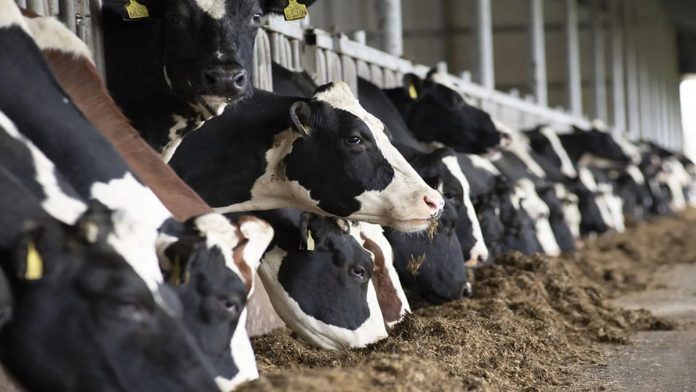News in Brief:
– Egypt Ministry of Agriculture allocates $10 million to support 426 small-scale breeders and young graduates participating in the national cattle fattening project.
– This initiative, part of the country’s ‘Decent Life’ program, aims to increase meat and dairy production, contributing to food security and market stability.
Egypt’s Ministry of Agriculture has allocated approximately $10 million (EGP 307.35 million) to support 426 small-scale breeders and young graduates participating in the national cattle fattening project, according to a press release.
This initiative, launched as part of President Abdel Fattah Al-Sisi’s ‘Decent Life’ program, aims to develop rural areas and improve the livelihoods of small farmers and breeders. It comes under the umbrella of a larger project with a total budget of $428.6 million (EGP 8.572 billion) supporting over 43,500 beneficiaries and targeting the raising and fattening of over 505,000 heads of cattle across the country.
Also, the project seeks to increase the availability of both meat and dairy products in the Egyptian market by supporting the production of calves for meat production and high-yielding cows for milk production.
Meantime, to ensure the success of the initiative, the Ministry of Agriculture, in collaboration with the Agricultural Bank of Egypt and the National Bank of Egypt, is conducting inspections of beneficiaries’ barns to verify adequate space and housing for the cattle. Additionally, the Ministry is providing veterinary and health support to the beneficiaries and assisting them with any challenges they encounter.
Deputy Minister of Agriculture for Livestock, Fisheries, and Poultry, Mostafa El-Sayyad stated that the national project for fattening cattle will provide red meat in the market at a fair and reasonable price for both producers and consumers, and stabilise prices in the markets.
The World Bank’s latest food security update stated that Egypt’s food inflation was 18% higher by the end of February 2024 than it was in the previous year. However, since September 2023, its year-on-year change in food inflation rate has been steadily falling. Likely, price control policies and other governmental interventions are showing rewards.



